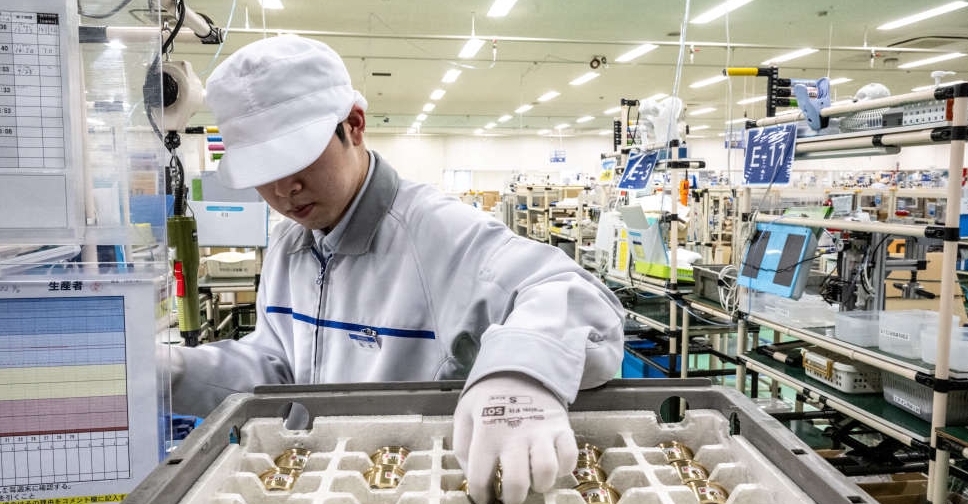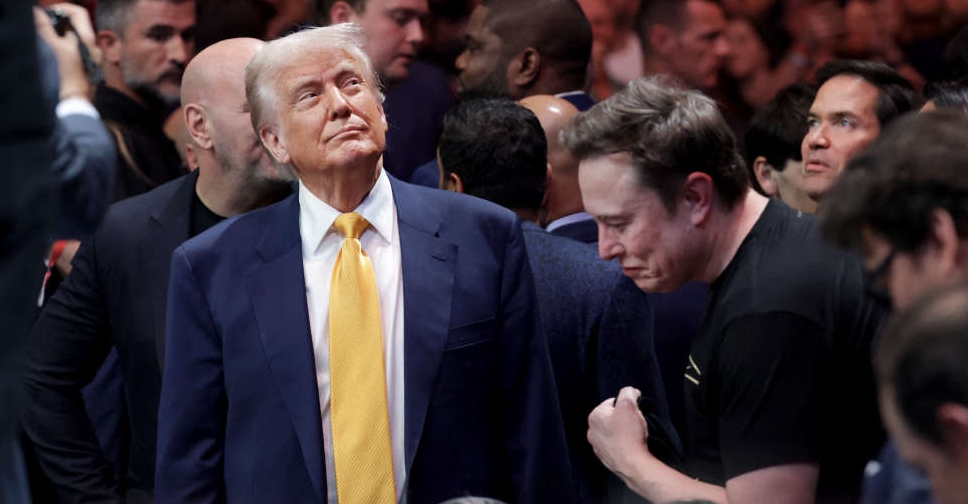
Jack Ma is taking Alibaba Group Holding Ltd. on the road to Beijing as he looks to reverse the company’s $55 billion plunge in market value this year. China’s biggest e-commerce emporium is moving the base for its annual Singles’ Day shopathon to the former Olympic aquatics center in the capital, and it’s bringing “American Idol” finalist Adam Lambert along for entertainment. Alibaba sold $5 billion in merchandise during the first 90 minutes of the day, putting it on track to top last year’s $9.3 billion in revenue. Shifting from its Hangzhou home to the heart of Chinese power shows Alibaba’s ambitions to maintain growth, penetrate the northern region where rival JD.com Inc. is based and answer the government’s call for “national champions” in technology. Even amid a slowing economy, Alibaba estimates that 1.7 million deliverymen, 400,000 vehicles and 200 airplanes will be deployed to handle packages holding everything from iPhones to underwear. “The move is symbolically significant because it indicates that Alibaba, by moving to the capital, is China’s indisputable e-commerce leader,” said Cyrus Mewawalla, managing director of London-based CM Research. “Politically, it might be a tacit acknowledgment that Alibaba, a national champion, now has to be closer to China’s authorities and more in tune with the government’s strategic interests.” Rising Incomes Going to the political, economic and media hub comes after Alibaba’s roller-coaster first year as a public company. A record offering was followed by a record fall below the initial price, allegations the company wasn’t doing enough to fight counterfeits on its platforms, and the replacement of its chief executive officer. Simultaneously, China’s economic expansion slowed to a 25-year low, putting pressure on corporate profits. Yet Alibaba was able to post quarterly sales that climbed by almost a third after it boosted advertising targeting shoppers able to hold on to more of their money. “We’re seeing more and more consumers shifting to mobile,” CEO Daniel Zhang said Tuesday night. “That’s why we’ve prepared special promotion sessions during peak commute hours, so people can shop on their phones.” That was underscored by data from Alibaba showing that 27 million people were shopping on mobile phones, fueling 72 percent of early sales. Alibaba shares were little changed at $81.43 at the close Tuesday in New York, putting the stock down 22 percent this year. Apple, Lego The nation’s per capita disposable income rose 7.7 percent in the first nine months from a year earlier - after adjusting for inflation - outpacing the 6.9 percent rise in gross domestic product. Participation and spending by consumers is expected to increase this year, with clothing and footwear being the most popular category, according to a survey by Nielsen Holdings Plc. Alibaba’s Singles’ Day turnover may soar to 87 billion yuan ($13.7 billion), according to researcher IDC. The prediction for a record comes as China re-balances the economy away from relying on investment toward greater consumption. “Chinese consumers are living in a super-connected world where the convenience of online shopping has become the norm,” Yan Xuan, president of Nielsen Greater China, said in a statement. “We expect this growth trend to continue.” ‘Bare Branches’ Singles’ Day, a Chinese twist on Valentine’s Day, was invented by students in the 1990s, according to the Communist Party-owned People’s Daily. When written numerically, the date is reminiscent of “bare branches,” the Chinese expression for bachelors and spinsters. The Singles’ Day promotion started by Alibaba on Nov. 11, 2009, was copied by rivals and has morphed into China’s biggest excuse to shop online. Some of the world’s most popular brands - including Apple, Nike, Lego - flood Alibaba’s websites with promotions and discounts. International Expansion For the first six years, the results were tabulated during a ceremony held at the company’s headquarters in Hangzhou, eastern China. Alibaba said it decided to shift to Beijing because of the city’s influence. “The globalization of Nov. 11 and of Alibaba has to start from Beijing,” Alibaba wrote in an Oct. 13 post on its official Weibo account. Moving the event also allows Alibaba to take advantage of the capital’s media machine, said Jeff Hao, a Hong Kong-based analyst at China Merchants Securities Holdings. The company said in September it was adding Beijing as another headquarters, with an eye toward the northern China market. “Alibaba wants this event to be high profile - Beijing has the kind of media resources that it will need,” Hao said. “Gaining exposure is a means to ensure growth this year.” Last year, Alibaba began pushing international expansion for the first time, generating sales to more than 200 countries. Sixty percent of those surveyed by Nielsen this year said they will purchase, or consider purchasing, products from overseas. Creating a second headquarters in Beijing may also help Alibaba incorporate some acquisitions into the fold. So far this year, the company has announced 30 deals valued at more than $15 billion, buying stakes in off-line retailers, delivery companies and streaming media services. “By moving to Beijing, Alibaba will be able to work closely with a lot of the partners it bought stakes in,” said Michelle Ma, an analyst at Bloomberg Intelligence in Hong Kong. “As the tech center of China, Beijing holds a lot of talent.”




 Japan compiles emergency economic package to ease tariff pain
Japan compiles emergency economic package to ease tariff pain
 Bangladesh, World Bank sign $850 million deal to boost jobs, trade
Bangladesh, World Bank sign $850 million deal to boost jobs, trade
 Saudi Arabia, India agree to boost cooperation in energy and defence
Saudi Arabia, India agree to boost cooperation in energy and defence
 Musk, facing criticism and falling Tesla sales, to cut back DOGE work
Musk, facing criticism and falling Tesla sales, to cut back DOGE work


